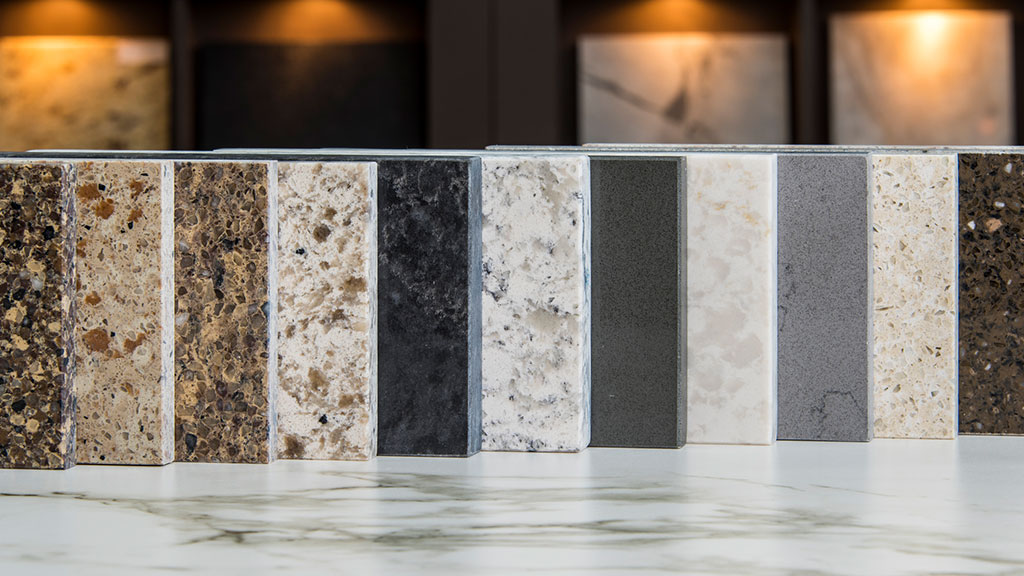Natural stone is one of the oldest, and certainly the most time-tested, of building materials known to man. Its beauty, durability, long life cycle and low-maintenance qualities make it the choice of many architects for commercial and institutional applications.
With a wider consumer base than ever, there are some simple, yet important, tips to know when using natural stone when it comes to proper care and maintenance.
Sealing natural stone surfaces is a decision that depends on where and how the stone is used. Depending on the stone application, a sealer may need to be applied to preserve the aesthetic of the material. Sealants on newly fabricated natural stone surfaces can work effectively to keep moisture and food/oil/stains from penetrating.
There are several categories of sealers, including color enhancing sealers that deepen and enrich the color of the stone, but do not change the surface sheen, texture or slip resistance.
With all of the variables and sealer options available, the question of “What type of sealer is best for natural stone?” should be answered by your architect, contractor or installer.
There are three main categories to consider when it comes to aesthetics.
Impregnating Sealers
First, natural-look impregnating or penetrating sealers do not change the appearance of the stone and can be used for both interior and exterior applications. These are called silanes or modified silanes and are a type of penetrating sealer, which penetrate deeply into the material, impregnating it with molecules which bond to the capillary pores. This enables the stone to repel water and / or oils from within the stone material. Some modified silane sealers impregnate deeply enough to protect against salt attack, such as efflorescence and freeze-thaw spalling.
Penetrating Sealers
Second, color enhancing sealers are extremely popular and are also impregnating or penetrating in nature. These products deepen and enrich the color of the stone, but do not change the surface sheen, texture or slip resistance. Most are designed for interior use only, but some are suitable for exterior installations.
The most penetrating sealers use siliconates, fluoro-polymers and siloxanes, which repel liquids. These sealers penetrate the surface of the stone enough to anchor the material to the surface. They are generally longer lasting than topical sealers and often do not substantially alter the look of the stone, but still can change the slip characteristics of the surface and do wear relatively quickly.
Topical Sealers
The last category is topical or coating sealers. These products can bring out some color in the stone, while providing a low- to high-sheen finish. They are generally recommended for interior applications and will change the slip resistance to a certain degree, so testing and discussion with the manufacturer is recommended to determine suitability.
Generally made from polyurethanes or acrylics, these sealers may be effective at stopping stains but, being exposed on the surface of the material, they tend to wear out relatively quickly, especially on high-traffic areas of flooring. This type of sealer will significantly change the look and slip resistance of the surface, especially when it is wet.
Most sealant companies offer a toll-free number for technical assistance and welcome questions up front to help identify the best sealer for the installation and application. Websites are also a great place to get information, and some companies offer a live chat service to further assist customers in making the right choices.
Source of article: https://www.stoneworld.com/articles/91129-solutions-for-protecting-and-maintaining-natural-stone

